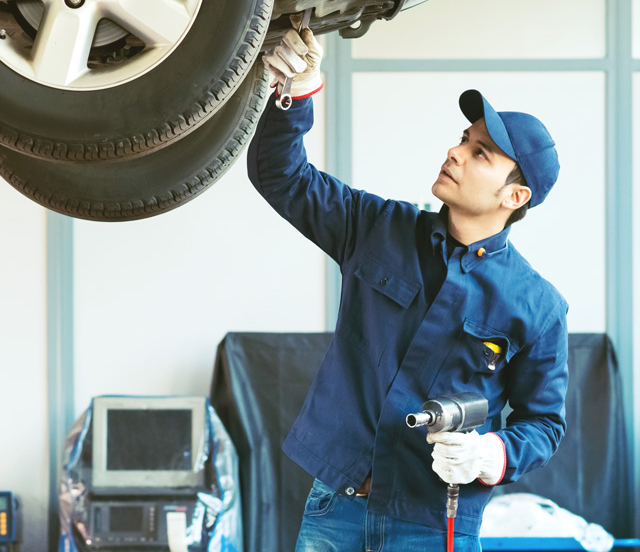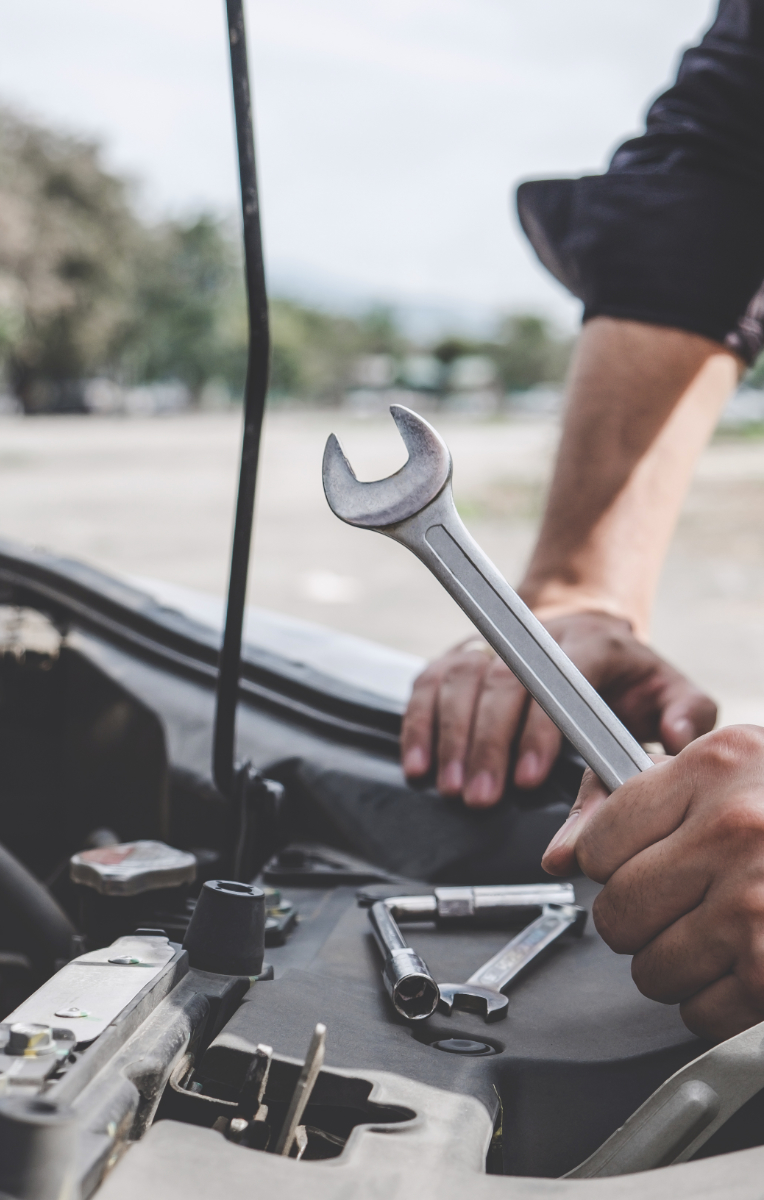
Car Repairs in Glasgow
With over 20 years of hands-on experience in the motor trade, our expert technicians can take on a wide range of repair work. At Darnley Garage, we are continually trying to provide the best service to our customers, so we are always investing in the latest technology and training schemes for our technicians to offer a quality service.

Brakes
Your brakes are one of the most crucial components of your vehicle and require regular maintenance to ensure they are functioning correctly. The most accurate way to assess the safety of your brakes is with a calibrated roller brake tester.If you are concerned about your brakes speak to our experienced technicians.
Suspension
Responsible for a smooth ride and responsive handling, poor or damaged suspension can make for an uncomfortable driving experience. If left unchecked, suspension damage can continue to degrade leading to increased stopping distances, increased or uneven tyre wear and sluggish handling.
Cambelts
A snapped cambelt can require engine head dismantling and valve replacement to fix, with labour and materials for the repair potentially costing hundreds of pounds. Darnley Garage regularly replaces worn timing belts for our customers - It’s a quick and inexpensive procedure that can save you hundreds of pounds in future repair bills.
Cambelts are typically made from rubber, and we recommended that they are replaced every three years or 60,000 miles - to avoid the belt breaking and to cause severe engine damage.
Replacement of a timing belt is usually vastly cheaper than repairs caused by a cambelt failure and takes far less time to complete.
Clutches
No clutch will last forever. The facings on the clutch disc wear as the miles accumulate. The clutch pressure plate and flywheel can become scored, worn, warped or cracked from all the heat and friction generated by the clutch. A perfectly good clutch can be ruined by oil contamination; the cable or hydraulic linkage can fail, or the release bearing, pilot bearing/bushing or fork can wear out and prevent the clutch from working correctly. Darnley Garage is well experienced in all manner of clutch repairs. Here are a few of the most common clutch-related issues.
We provide many general repair solutions for exhausts, steering and MOT repairs as well as brakes, cambelts, clutches and suspension.
Clutch Slipping
One of the most common clutch problems is slipping. Clutches are supposed to move while the clutch is being engaged, so the vehicle does not jerk or lurch forward when starting.
The clutch also needs to slip when the gears are changed. This will ease the shock on the transmission and drive-train. But once the clutch pedal is fully released, the clutch should hold firm and provide a robust coupling between the engine and transmission. If it does not, something is wrong and needs to be investigated.
If a newly installed clutch is slipping, the most likely causes would be:
- Oil or grease contamination
- Incorrect release system adjustment
- A defective cable adjuster
- A blocked clutch master cylinder port or binding slave cylinder
- A misaligned or improperly installed release bearing
- Improper flywheel machining of a step or cup flywheel
Clutch Chatter
Chattering is often caused by oil or grease on the clutch linings, but it also can be caused by the following conditions:
- Burned or glazed linings
- A warped or grooved flywheel
- Missing flywheel dowel pins
- A worn pilot bearing/bushing
- A worn bearing retainer
- Worn or damaged clutch disc or input shaft splines
- Bent or broken drive straps on the clutch
- A bent or distorted clutch disc
- A loose clutch cover
- Missing flywheel dowel pins
External causes of clutch chatter include free or broken engine or transmission mounts, misalignment of the chassis and drive-train components, worn or damaged U-joints or CV joints, a free transmission cross member or a worn or bent release fork.
Clutch Will Not Release
If the clutch does not release completely when the clutch pedal is fully depressed, the disc will continue to turn the input shaft. This may prevent moving from neutral into gear, cause grinding when the gears are changed or cause the engine to stall when coming to a stop.
